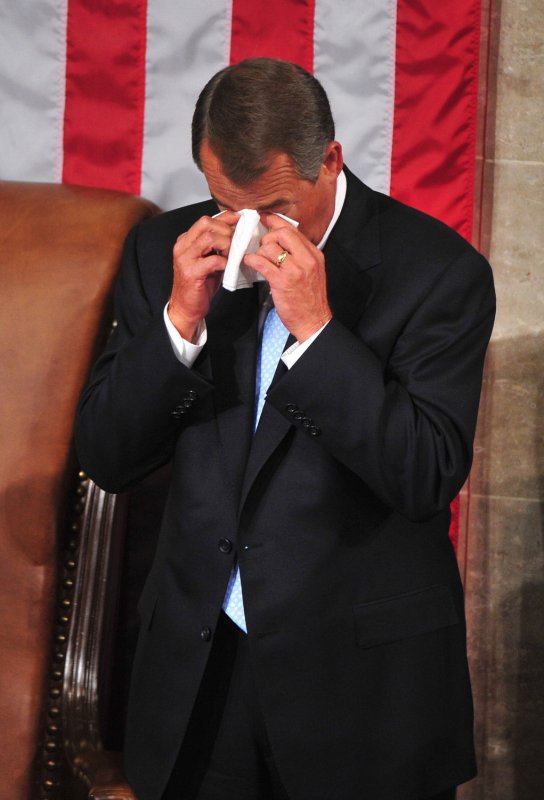House Speaker-designate John Boehner (R-OH) wipes tears from his eyes during his swearing-in ceremony in the House Chambers of the U.S. Capitol Building in Washington on January 5, 2011. Boehner was elected Speaker of the House after the Republicans gained the majority for the 112th Congress. UPI/Kevin DIetsch |
License Photo
WASHINGTON, Jan. 6 (UPI) -- Repealing the healthcare law -- sought by U.S. House Republicans -- would increase the federal deficit by $230 billion, the Congressional Budget Office said.
The non-partisan CBO's preliminary analysis of the Republicans' Repealing the Job-Killing Health Care Law Act boosted Democrats' claims that overturning President Obama's signature domestic bill would devastate the deficit, Politico reported.
The CBO score on the Affordable Care Act indicated it would decrease the deficit by $143 billion over 10 years -- a figure Republicans dispute.
The CBO estimated that the March 2010 healthcare legislation "would reduce budget deficits over the 2010-2019 period and in subsequent years; consequently, we expect that repealing that legislation would increase the budget deficit," CBO Director Doug Elmendorf said in his analysis.
Michael Steel, spokesman for House Speaker John Boehner, called the estimate faulty.
"There is no one that believes the Washington Democrats' job-killing healthcare law will lower costs, because it won't. That's why we pledged to repeal it and replace it with common-sense reforms that will actually work," Steel told Politico.
He said House Budget Committee Chairman Paul Ryan, R-Wis., said the CBO analysis excluded the $115 billion needed to implement the law and double-counted $521 billion in Social Security payroll taxes, among other things.
"It measures 10 years of revenues to offset six years of new spending," Steel said. "Even the administration's own actuaries have said it won't reduce the deficit."
The House is scheduled to vote on the repeal measure next week.















